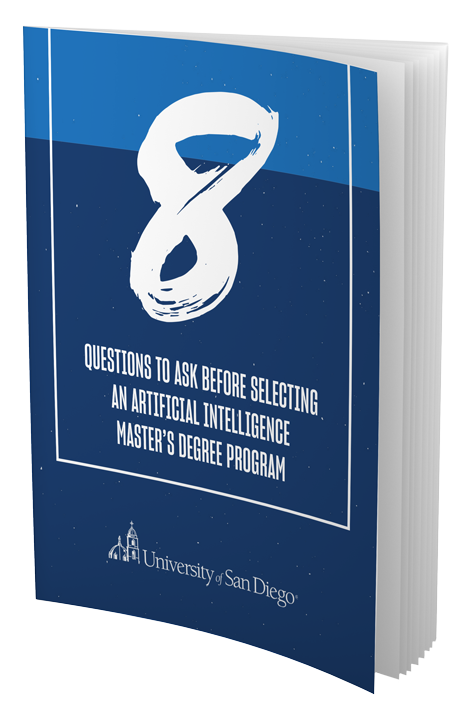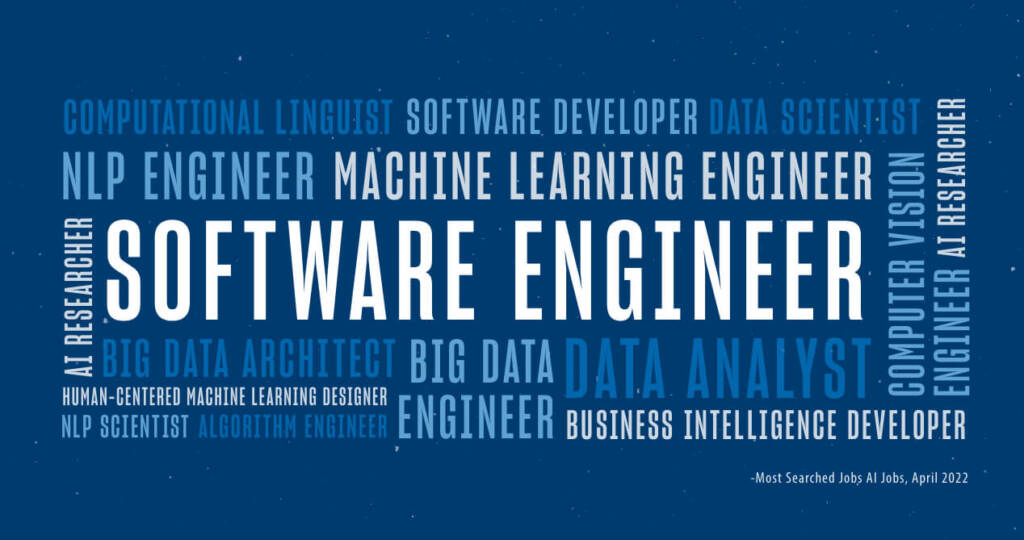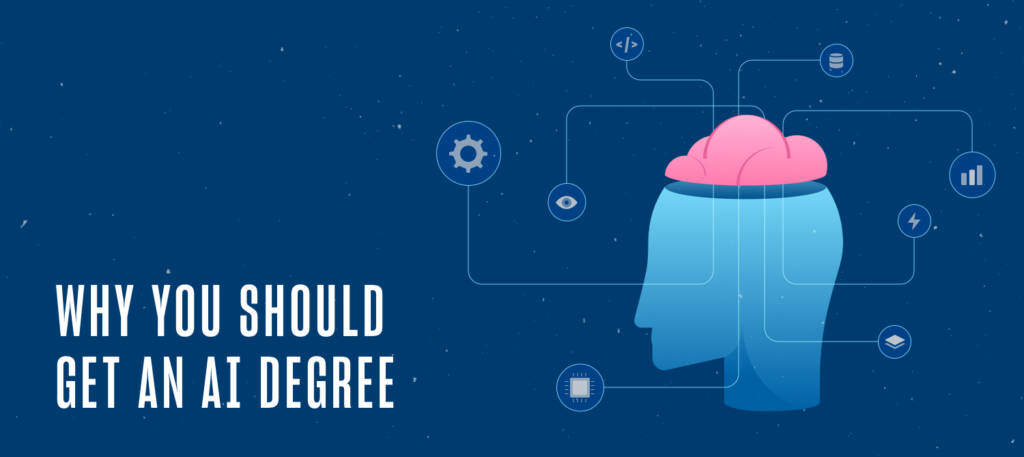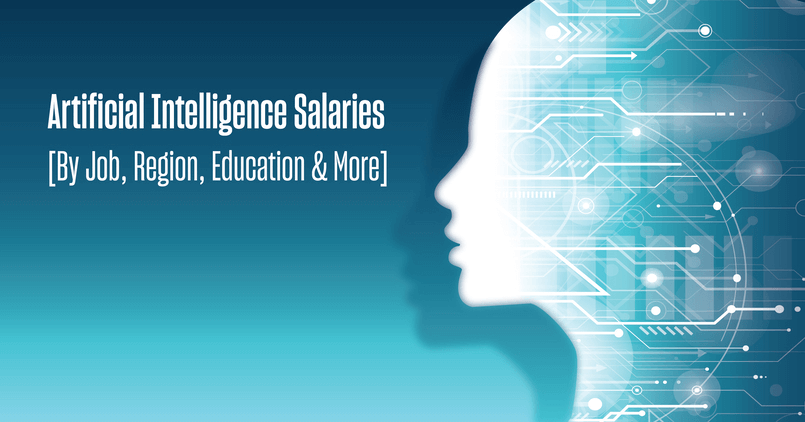Picture a robot doing a fist-bump with a human. That’s the iconic image used to symbolize the extraordinary potential of human-machine collaboration in “How Artificial Intelligence is Transforming the World (Brookings Institution).
Artificial Intelligence is already changing the global economy and people’s everyday lives in significant ways. And one of the most profound ongoing impacts will be in how AI and machine learning (ML) affect the employment landscape. But the big story is not about the idea of robots taking over so-called “repetitive jobs” from humans.
In fact, according to one school of thought, “AI will be the most significant job engine the world has ever seen. Artificial intelligence will eliminate low-skilled jobs and effectively create massive high-skilled job opportunities that will span all sectors of the economy.”
As the impact and importance of artificial intelligence and machine learning continue to expand across all industries, demand continues to increase for skilled AI professionals. This guide to how to get a job in artificial intelligence is designed to help you explore starting a successful career in this fascinating, game-changing field.
How to Start Your Career in AI
Pursuing a career in artificial intelligence (AI) offers a world of opportunities for innovation and impact. Whether you’re contemplating a master’s program in AI or looking to transition into the field, here’s a guide to setting the stage for a successful career:
1. Identify Your Foundation and Build Upon It
- Absolute beginners: Jumpstart your journey by immersing yourself in essential AI skills through hands-on training. Focus on building a strong foundation in mathematics, programming, and understanding AI and machine learning (ML) concepts.
- Current programmers: Leverage your coding skills by diving deep into AI-specific programming and machine learning models.
- Data science enthusiasts: Enhance your data expertise with advanced AI methodologies, aiming to solve more complex problems.
2. Pursue Relevant Academic Credentials
Secure a degree or certification in a field closely related to AI, such as computer science, data science, or engineering, emphasizing courses that cover AI, ML, algorithms, and data processing. This step solidifies your theoretical understanding and prepares you for advanced studies, such as a master’s program in AI.
3. Sharpen Key Skills
- Math mastery: Hone your knowledge in calculus, statistics, and algebra, all crucial for working in AI.
- Programming proficiency: Gain expertise in AI-centric programming languages, such as Python and C++, which are essential for creating sophisticated AI models.
- Business insight: Understand the commercial applications of AI to make your solutions more impactful and relevant.
4. Keep Up With AI Innovations
The AI landscape is continually changing. Stay informed about the latest technologies, applications, and industry trends by engaging with relevant readings, podcasts, and communities. This ongoing education will spark new ideas and keep your skills sharp.
5. Embrace Lifelong Learning
Commit to continuous learning through online courses, webinars, and workshops focused on AI. This commitment is crucial in a field as dynamic as AI, ensuring you remain at the forefront of innovation.
6. Explore AI in the Real World
Investigate how AI is applied across various sectors, from healthcare to finance to entertainment. Understanding these applications firsthand will deepen your appreciation of AI’s potential and guide your academic and career choices.
7. Connect With the AI Community
Networking with peers, professionals, and professors in the AI field can provide invaluable insights, advice, and opportunities. Consider joining AI clubs, attending conferences, and participating in online forums.
8. Apply Your Knowledge Practically
Engage in projects, internships, or research that allow you to apply what you’ve learned in a real-world setting. This practical experience is not only enriching but also appealing to prospective employers and academic programs.
By following these steps and approaching your AI career journey with curiosity and dedication, you’ll be well-equipped to thrive in this exciting field. Remember, the path to a successful career in AI is built on continuous learning, practical application, and a passion for innovation.
How to Get Experience in AI When You Have None
More helpful advice on getting a job in AI comes from Donal Byrne, who discovered a passion for artificial intelligence while earning a bachelor’s degree in Computer Science and describes his experience cracking the AI job market. One of the most important takeaways from his “How to Get a Job in AI with No Experience” article in TowardDataScience.com is that, well, you actually do need some experience. (“Let’s be honest, no one is going to hire someone with absolutely no experience.”)
The good news is that there are a number of excellent pathways you can take to build some AI and ML experience on your own. Of course, it’s always smart to pursue networking opportunities with people working in AI, attend conferences and virtual events, and join online groups dedicated to AI, such as those found on LinkedIn.
However, hands-on training is considered essential to get started in AI and ML. Opportunities for hands-on training include:
1. Develop AI Skills by Building Personal Projects
Byrne recommends doing projects on Github, noting that a project doesn’t have to be “big or flashy or innovative, it just needs to display your understanding of the topic and give people an indication that you are able to work/research independently with good coding standards.” (Resource: Top 6 AI Projects in Github You Should Check Out Now)
2. Participate in Hackathons to Network and Grow
Participating in these have multiple benefits. “It forces you to go out and build something,” says Byrne, plus “you get to meet more experienced people and you can put it on your growing CV/portfolio.” It’s important to note that AI-related work potentially connects to many industry-specific hackathons. (Resources: Hackathons in Artificial Intelligence; 25+ Cool Hackathon Ideas for Your Upcoming Hackathons)
3. Apply Your Learning by Competing in Coding Challenges
“Similar to hackathons, coding challenges force you to build a practical application of what you have learned,” an endeavor that can be “worth its weight in gold” when applying for jobs, says Byrne. (Resources: Halite; HackerRank)
4. Collaborate on Open-source Projects
“Open source artificial intelligence projects don’t always get a lot of publicity, but they play a vital role in the development of artificial intelligence,” says Datamation.com. The website lists a number of interesting open source AI projects and notes that they are “often pursued as passion projects” by seasoned and student developers alike.
AI and Machine Learning Specializations
Want to get your head spinning, but in a good way? Take a deeper dive into some of the many data science-related fields that are increasingly making their presence felt everywhere.
Machine learning is considered to be a subset of artificial intelligence, one that’s focused on the science of designing and applying algorithms that are able to learn things, and deep learning is a subset of machine learning. IBM uses the metaphor (and a graphic) of Russian nesting dolls to help simplify the relationships, also explaining the important role of neural networks, which “mimic the human brain through a set of algorithms.”
Don’t worry. As Byrne notes, “It is impossible for one person to know everything” about AI and ML. But it is extremely helpful to know the lay of the land, and you may find that doing deeper research may lead you to discover an area of specialization that connects with your aptitudes and interests.
Here are some helpful resources to check out as you explore some of the many specialties connected to the disciplines of artificial intelligence and machine learning:
- Natural Language Processing
- Computer Vision
- Recurrent Networks
- Generative Adversarial Networks (GANs)
- Meta Learning
- One-Shot Learning
- Supervised, Unsupervised and Reinforcement Learning
- Neural Network Visualization and Debugging
- Generative Models
Technical Skills Required in AI
The technical skills required in AI and ML vary greatly depending on what discipline or specialization you are involved with. Here are some of the most helpful tech skills and proficiencies:
- R, Python, Java, C++
- Excel, SQL, Tableau
- Hadoop, Spark
- Database administration
- Data analysis
- Data visualization
- Quantitative analysis
- Probability and statistics
- Reporting and presentation skills
- Business acumen
- Specific industry knowledge
- Extraction and signal processing techniques
- Unix tools (awk, grep, cat, sort, find, cut, tr, etc.)
DZone, an online community for technology professionals, also lists such so-called soft skills as:
- Curiosity and creativity
- Patience and perseverance
- Ability to stay updated and grasp new concepts quickly
Professional Certifications in AI
Professional certifications can play a very important role in helping current and aspiring data science, artificial intelligence and machine learning professionals gain needed knowledge, both general and specialized.
This list of AI-related courses and certifications will help give you an understanding of some the self-education opportunities that are available:
- AI for Everyone | Andrew Ng, Coursera
- Fundamentals of AI and Machine Learning | LinkedIn (9 courses)
- Machine Learning and Artificial Intelligence | Google (courses and skill badges)
- IBM Applied AI Professional Certificate | Coursera
- Deep Learning Specialization | Andrew Ng, Coursera
- IBM AI Engineering Professional Certificate| Coursera
- Professional Machine Learning Engineer | Google (certification exam)
- Artificial Intelligence Engineer Certification| AI Board of America (ARTIBA)
The Role of Formal Education in Your Al Career
Though most AI professionals have at least a bachelor’s degree in such majors as statistics, mathematics, data science, computer science, engineering, physics, biological sciences, chemical sciences, healthcare, etc. — and many have earned a master’s — there are also examples of tech geniuses who carve out successful careers in artificial intelligence without earning an academic degree. However, they are the exception.
“The fact is,” according to Datamation, “AI is not a discipline you can teach yourself like many developers do.” The types of AI projects and coursework emphasized in advanced degree programs, “tend to be cutting edge if not bleeding edge, and that gives the student the experience they need for the work environment.” The Datamation article, which examines the high salaries being paid to artificial intelligence professionals, cites reports indicating that “35% of AI positions require a Ph.D. and 26% require a master’s degree.”
An advanced degree also better positions you for AI leadership roles, according to Christopher, the AI researcher and writer referenced above, who says, “If you’re looking to get into leadership roles entailing supervision, you need to have a master’s degree or a Ph.D.,” preferably a program that offers robust coursework focused on “real-world problems and application domains.”
[RELATED] 8 Questions to Ask When Exploring Artificial Intelligence Master’s Degree Options >>
The relatively recent emergence of advanced degree programs specializing in artificial intelligence creates new opportunities for current and aspiring AI professionals. Such programs also have the potential to impact a diverse range of industry sectors, as employers fuel increasing demand for workers who possess the needed skills, education and experience.
For example, the University of San Diego’s online Master of Science in Applied Artificial Intelligence degree program works closely with its own Industry Advisory Board to ensure that its curriculum — anchored in both the theoretical and practical applications of AI — is immediately relevant and tailored to the needs of potential employers.
The USD program is also built around a rigorous, in-depth capstone project that pairs you with fellow students and experienced instructor-mentors, and culminates in the creation of an online portfolio you can use to demonstrate your experience and proficiency.
This report was developed by the University of San Diego’s career-building, online Master of Science in Applied Artificial Intelligence degree program.




